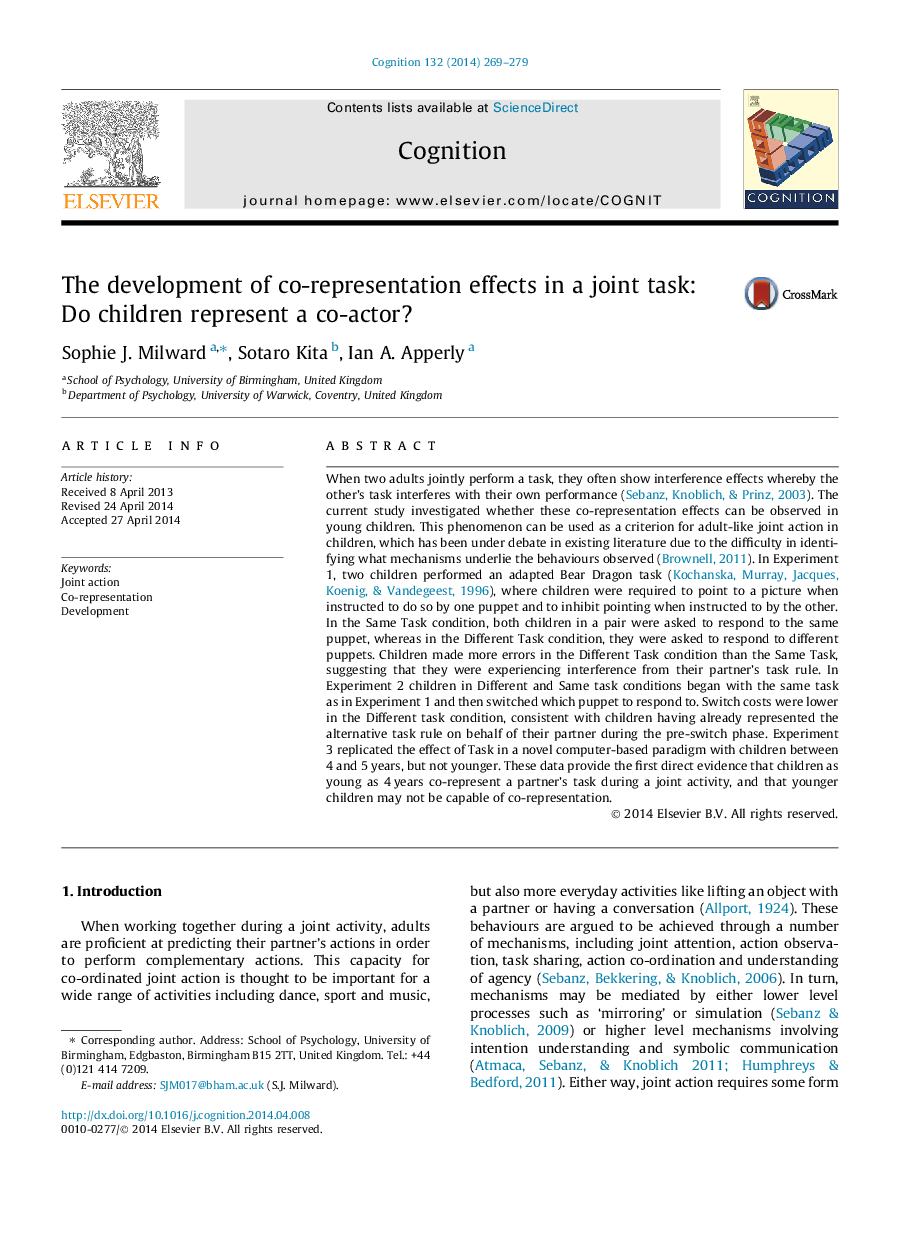| کد مقاله | کد نشریه | سال انتشار | مقاله انگلیسی | نسخه تمام متن |
|---|---|---|---|---|
| 10457524 | 921842 | 2014 | 11 صفحه PDF | دانلود رایگان |
عنوان انگلیسی مقاله ISI
The development of co-representation effects in a joint task: Do children represent a co-actor?
ترجمه فارسی عنوان
توسعه اثرات همکاری در یک کار مشترک: آیا کودکان نماینده یک همکار هستند؟
دانلود مقاله + سفارش ترجمه
دانلود مقاله ISI انگلیسی
رایگان برای ایرانیان
کلمات کلیدی
اقدام مشترک، همکاری نمایندگی، توسعه،
موضوعات مرتبط
علوم زیستی و بیوفناوری
علم عصب شناسی
علوم اعصاب شناختی
چکیده انگلیسی
When two adults jointly perform a task, they often show interference effects whereby the other's task interferes with their own performance (Sebanz, Knoblich, & Prinz, 2003). The current study investigated whether these co-representation effects can be observed in young children. This phenomenon can be used as a criterion for adult-like joint action in children, which has been under debate in existing literature due to the difficulty in identifying what mechanisms underlie the behaviours observed (Brownell, 2011). In Experiment 1, two children performed an adapted Bear Dragon task (Kochanska, Murray, Jacques, Koenig, & Vandegeest, 1996), where children were required to point to a picture when instructed to do so by one puppet and to inhibit pointing when instructed to by the other. In the Same Task condition, both children in a pair were asked to respond to the same puppet, whereas in the Different Task condition, they were asked to respond to different puppets. Children made more errors in the Different Task condition than the Same Task, suggesting that they were experiencing interference from their partner's task rule. In Experiment 2 children in Different and Same task conditions began with the same task as in Experiment 1 and then switched which puppet to respond to. Switch costs were lower in the Different task condition, consistent with children having already represented the alternative task rule on behalf of their partner during the pre-switch phase. Experiment 3 replicated the effect of Task in a novel computer-based paradigm with children between 4 and 5Â years, but not younger. These data provide the first direct evidence that children as young as 4Â years co-represent a partner's task during a joint activity, and that younger children may not be capable of co-representation.
ناشر
Database: Elsevier - ScienceDirect (ساینس دایرکت)
Journal: Cognition - Volume 132, Issue 3, September 2014, Pages 269-279
Journal: Cognition - Volume 132, Issue 3, September 2014, Pages 269-279
نویسندگان
Sophie J. Milward, Sotaro Kita, Ian A. Apperly,
